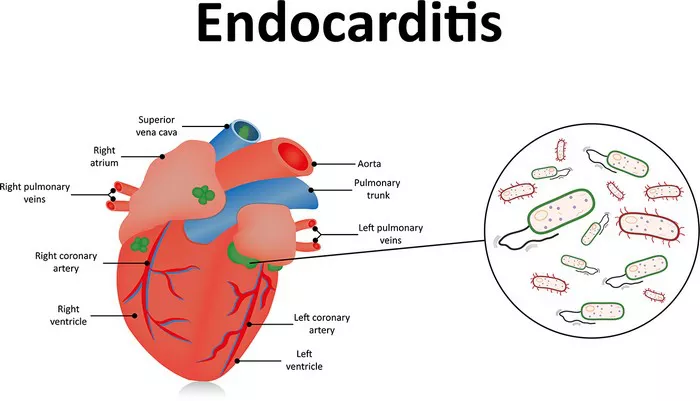What People Know about Myocarditis
Myocarditis, though relatively uncommon, can have serious implications for cardiovascular health. As a cardiologist deeply engaged in the study and treatment of this condition, it’s imperative to disseminate accurate information on how individuals can recognize the signs and symptoms of myocarditis. In this article, we’ll delve into the intricacies of myocarditis, exploring its etiology, clinical manifestations, diagnostic approaches, and management strategies.
What Is The Myocarditis?
Myocarditis is inflammation of the heart muscle (myocardium). Inflammation may reduce the heart’s ability to pump blood. Myocarditis can cause chest pain, shortness of breath, and fast or irregular heart rhythms (arrhythmias). Viral infection is one of the causes of myocarditis
What Are The Signs And Symptoms of Myocarditis?
Flu-like Symptoms: The early stages of myocarditis often mimic common viral illnesses, presenting with symptoms such as fever, fatigue, muscle aches, and malaise. Patients may overlook these nonspecific symptoms, attributing them to a passing infection.
Cardiac Symptoms: As the inflammation progresses, individuals may experience symptoms directly related to cardiac dysfunction. These can include chest pain or discomfort, palpitations, shortness of breath (especially with exertion), and swelling in the lower extremities due to fluid retention.
Electrical Instability: Myocarditis can disrupt the normal electrical conduction within the heart, leading to arrhythmias such as atrial fibrillation, ventricular tachycardia, or heart block. Patients may report sensations of fluttering or irregular heartbeats.
Signs of Heart Failure: In advanced cases, myocarditis can precipitate heart failure, manifesting as worsening shortness of breath, orthopnea (difficulty breathing while lying flat), paroxysmal nocturnal dyspnea (sudden awakening from sleep with shortness of breath), and edema (swelling) in the legs and abdomen due to fluid buildup.
Exercise Intolerance: Individuals with myocarditis may notice a decline in exercise tolerance or endurance, even with activities that were previously well tolerated. This can be attributed to compromised cardiac function and reduced myocardial reserve.
Systemic Manifestations: Beyond cardiac symptoms, myocarditis may elicit systemic manifestations such as joint pain, rash, or abdominal discomfort, particularly if the underlying cause is autoimmune or infectious in nature.
How to Diagnostic Evaluation It?
Prompt recognition and diagnosis of myocarditis are crucial for implementing appropriate management strategies and preventing complications. The diagnostic workup typically involves a combination of clinical assessment, laboratory investigations, imaging studies, and, in some cases, endomyocardial biopsy.
Clinical Assessment: A comprehensive history and physical examination provide valuable insights into the patient’s symptoms, risk factors, and potential triggers for myocarditis. Clinicians should inquire about recent viral illnesses, travel history, medication use, and exposure to toxins or illicit substances.
Laboratory Investigations: Blood tests may reveal elevated cardiac biomarkers such as troponin and brain natriuretic peptide (BNP), indicative of myocardial injury and heart failure, respectively. Serological testing for viral pathogens, including enteroviruses, adenoviruses, influenza, and parvovirus B19, can help identify potential infectious triggers.
Electrocardiography (ECG): ECG findings in myocarditis are variable and nonspecific but may include ST-segment and T-wave abnormalities, conduction disturbances, arrhythmias, and evidence of myocardial ischemia or injury. Serial ECGs can track changes over time and guide management decisions.
Echocardiography: Transthoracic echocardiography provides valuable information about cardiac structure and function, helping assess for ventricular dysfunction, chamber enlargement, wall motion abnormalities, and the presence of pericardial effusion, a common finding in acute myocarditis.
Cardiac Magnetic Resonance Imaging (MRI): Cardiac MRI is considered the gold standard for diagnosing myocarditis, offering superior tissue characterization and sensitivity for detecting myocardial inflammation and edema. Late gadolinium enhancement imaging can identify areas of myocardial fibrosis or necrosis.
Endomyocardial Biopsy: While invasive and reserved for select cases, endomyocardial biopsy may be warranted when there is diagnostic uncertainty or concern for specific etiologies such as giant cell myocarditis or eosinophilic myocarditis. Histopathological examination can provide definitive evidence of inflammation and guide targeted therapy.
Management Strategies
The management of myocarditis hinges on identifying and addressing the underlying cause while mitigating cardiac dysfunction and preventing complications. Treatment approaches vary based on the severity of symptoms, hemodynamic stability, and etiological factors involved.
Supportive Care: Mild cases of myocarditis may resolve with supportive measures such as rest, hydration, and symptomatic relief of fever and discomfort. Nonsteroidal anti-inflammatory drugs (NSAIDs) and analgesics can alleviate musculoskeletal symptoms, while caution should be exercised with fluid management in patients prone to heart failure.
Immunosuppression: In cases of autoimmune myocarditis or suspected inflammatory cardiomyopathy, immunosuppressive therapy with corticosteroids, immunomodulators, or biologic agents may be indicated to dampen the immune response and reduce myocardial inflammation. Close monitoring for infectious complications and side effects is essential.
Heart Failure Management: Patients with myocarditis-induced heart failure require aggressive management of fluid overload and optimization of cardiac function. This may involve diuretics, angiotensin-converting enzyme (ACE) inhibitors, beta-blockers, aldosterone antagonists, and, in select cases, mechanical circulatory support or heart transplantation for refractory disease.
Antiviral Therapy: Antiviral agents may be considered in cases where viral myocarditis is confirmed or strongly suspected, although the efficacy of specific antiviral medications remains uncertain. Treatment decisions should be individualized based on the viral subtype, disease severity, and potential risks and benefits.
Arrhythmia Management: Arrhythmias associated with myocarditis may require pharmacological intervention with antiarrhythmic drugs or catheter-based ablation procedures to restore normal cardiac rhythm and prevent sudden cardiac death. Implantable cardioverter-defibrillators (ICDs) may be indicated for primary or secondary prevention of ventricular arrhythmias.
Long-Term Monitoring: Following acute myocarditis, long-term surveillance is essential to monitor for disease recurrence, progression of cardiac dysfunction, and development of complications such as dilated cardiomyopathy or arrhythmias. Regular clinical assessments, echocardiography, and cardiac MRI can aid in risk stratification and guide ongoing management decisions.
Conclusion
Myocarditis poses a diagnostic and therapeutic challenge for clinicians due to its diverse clinical presentations and potential for adverse outcomes. Timely recognition of myocarditis requires a high index of suspicion, comprehensive evaluation, and a multidisciplinary approach involving cardiologists, infectious disease specialists, and other healthcare providers. By familiarizing oneself with the signs and symptoms of myocarditis and adopting a systematic approach to diagnosis and management, clinicians can optimize patient outcomes and minimize the burden of this often-overlooked cardiovascular condition.
FAQs


